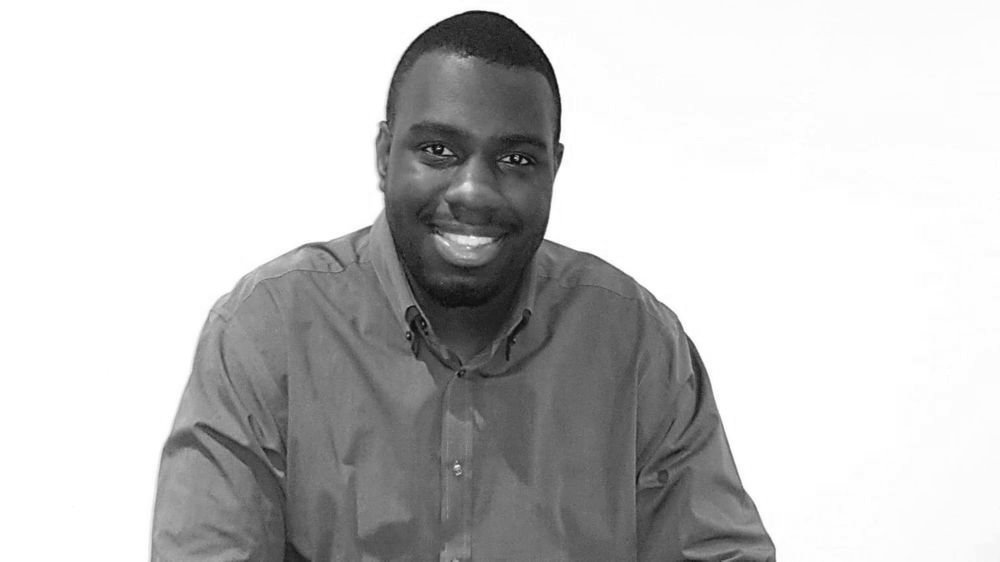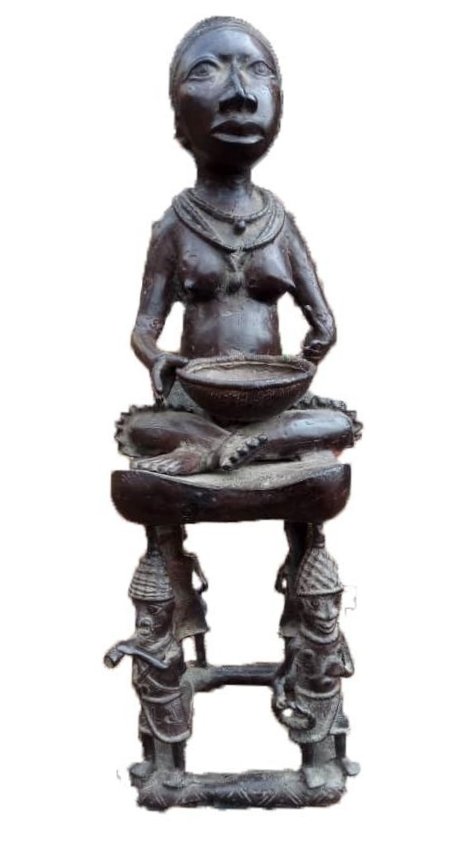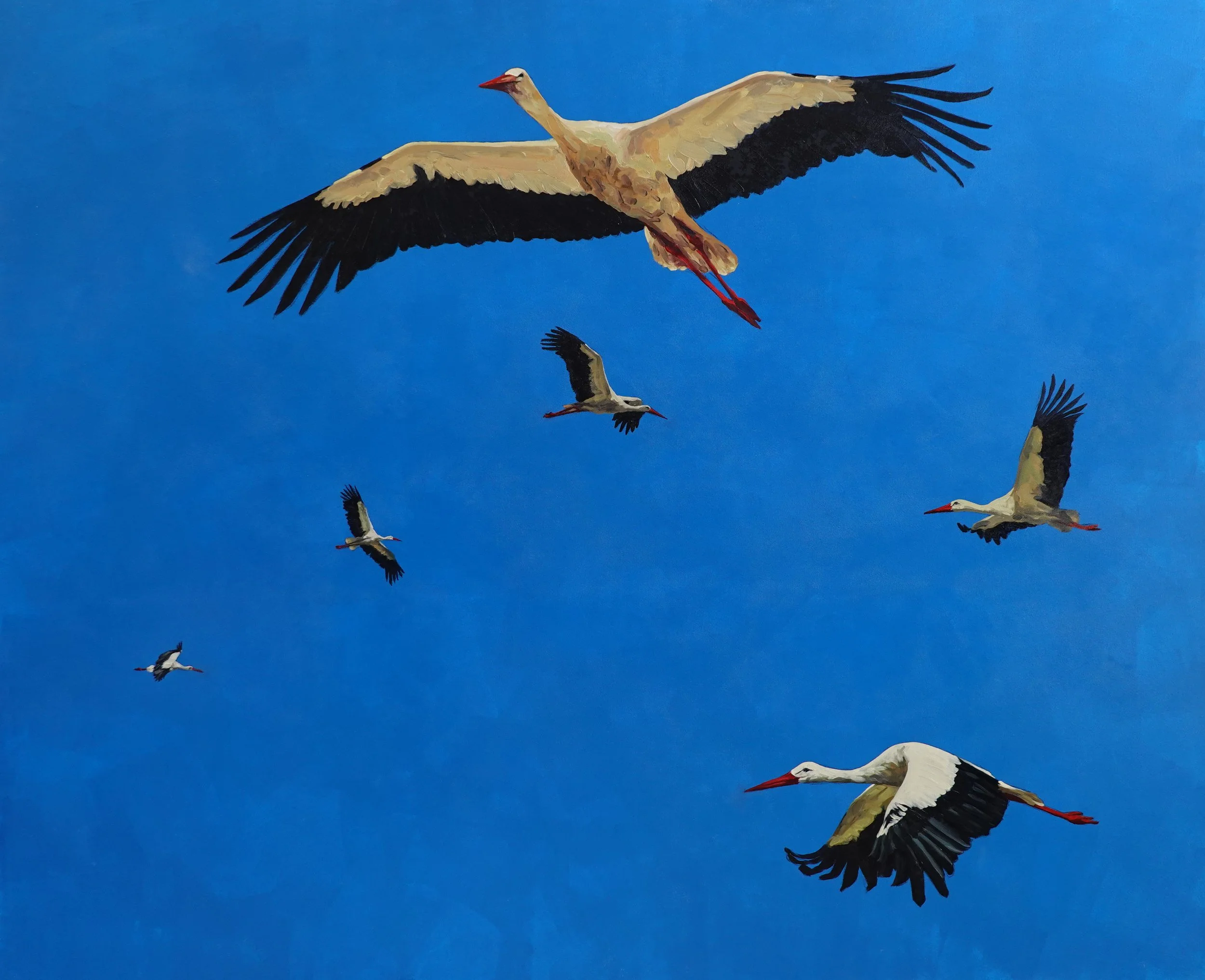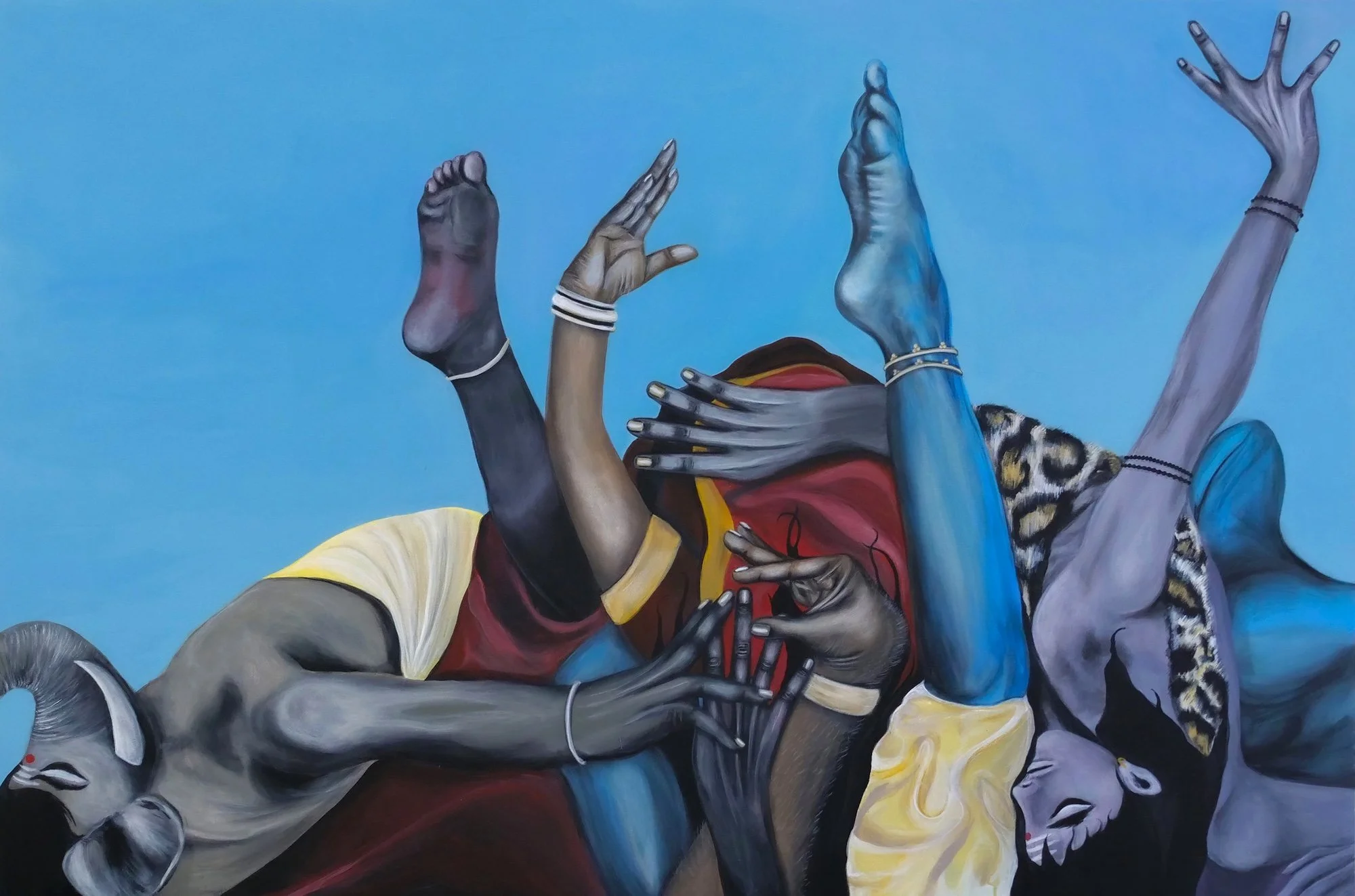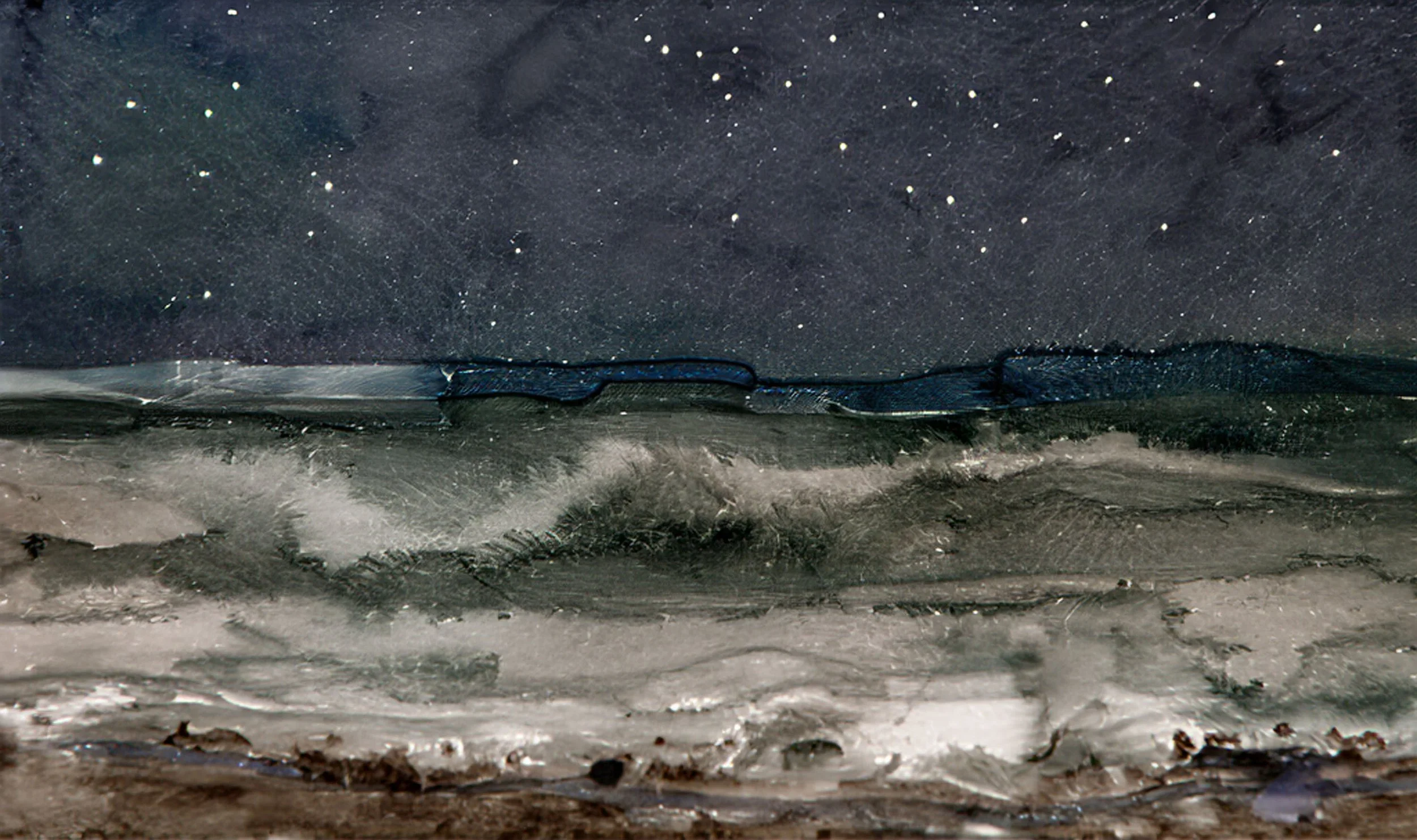10 Questions with Ahmed Lebourgeois Njifenjou - Tribaart
Ahmed Lebourgeois Njifenjou was born and raised in France. He is originally from Cameroon, where he lived for a few years. After spending time with his family members, he decided to work on art, which taught him the love and value of art. He is currently residing in Cardiff and is the founder of Tribaart, an online gallery that showcases African art through its website and other platforms. He worked on numerous projects, sales, and events in the UK and the rest of the world. An exciting virtual exhibition will be announced soon. Stay connected.
Tribaart - Portrait
ARTIST STATEMENT
Art lovers are able to immerse into African culture and tradition via painting, sculpture, and bronze works available on the website. Currently based in Cardiff (Wales), Tribaart has been working on different aspects of promoting African art. Its YouTube channel is one of them, and you can listen to afro descendent music, live events, shows, and art report. The latest concept is to introduce a virtual tour showing cultural places all around the world. A couple of sites have been published, and there will be more coming soon. Tutorial on how some artworks are made will also be available on the website and YouTube.
Tikar android © Tribaart
INTERVIEW
Could you tell us a little more about your background? How did you start experimenting with art?
I was born in Paris with a Cameroonian heritage from my dad and mum's side. I moved to Cameroon at the age of 15, and that's when my fabulous journey - or should I say continuous experience - into the art world started. I know it sounds crazy because Paris is known for being a cultural city, if not the city of culture in the world, but the truth is that, apart from Quay Branly Museum, there aren't a lot of African expositions/museums of this magnitude in France. Quay Branly is one of the biggest African expositions/museums in the world that showcase artwork, but to my knowledge, those artworks have been taken or stolen during French colonization in Africa, and I believe the French government should gradually give back those artworks to who they truly belong. While I was in Cameroon, I visited Foumban and discovered my heritage by visiting the Foumban royal palace, la Rue des artisans, and family members that I did not know. I spent numerous hours watching my relatives working and making artworks. That's when I started getting involved and made my first step into art. I left Cameroon and stayed in France before relocating to Cardiff, where I came for my studies. My relatives Papa Pokassa lives in Cardiff and is heavily active in African art. He took me to every art fair, sale, and auction he attended in the United Kingdom. It was a great experience and gave me an idea of what to do next. I wanted to thank Papa Pokassa for all the knowledge he shared with me during this time.
What is your personal aim as an artist?
My main goal will be to change people's mentality when it comes to African art, having people not be apprehensive about it and promoting it as much as possible. When they hear African art, you know people don't associate it with quality or have the same consideration as other types of art, and that's what I want to change mentalities. In my opinion, African art is the most authentic you can find on the market.
Bronze Couple Mende © Tribaart
What messages do you want to convey with your art?
My messages will be to persevere in whatever form of art you do because it will always be someone that like what you do. I want to show the world how African art is beautiful, authentic suitable to all environments in terms of forms of art: from painting to sculpture, bronze to decorative art—most of all proving to the world the quality and creativity of my work.
How much of your personal life and experiences are reflected in your work? Is there any specific event that influences your approach to art and your production?
In terms of work, we (Myself and Tribaart Artist) got a lot of our inspiration from African tradition, cultural environment, or a major event in Africa. You can see as an example the painting called "En cuisine" available on our website, which represents two ladies making food outside with one of the ladies tying her baby to the back. Tying a baby to the back is part of one the oldest African tradition, very common, and has been done for centuries. This painting captures that heritage. In Europe, it is a less common practice.
What is the most challenging part for you about creating art?
The most challenging part is to find the bridge between your thought and how to express them in artwork visually. It can be frustrating not to know how or where to start from time to time. But I normally take a break and leave it for a few days or weeks before finishing what I started.
Coffret bijoux © Tribaart
Statue Yoruba © Tribaart
Is there anything you would like to experiment with in the future?
I would like to organize workshops for kids where it will be possible to learn more about African games, culture, and traditions. On the other hand, in the near future, by God willing, I will be able to hold events or a festival where I could showcase art, games, culture, music, and fashion shows from Africa. It will be good to offer the chance to other talents to show their skills and quality of work. That's something I will be proud to share with the rest of the world. Regarding the location, I'm thinking of Cardiff, but when the moment arrives, I will decide where to host it.
You also run a gallery dedicated to African art. Do you find that the shift to digital exhibitions and art fairs has helped you promote your work and that of other artists?
It has helped me a lot, and prior to the pandemic, they were the main way I was promoting our work; now that I have established a website, YouTube, and Instagram account, I can display my work related to art easily via those platforms and reach a wider audience. In addition, I learned during the pandemic how to open and change my ways of working; it has allowed me to establish partnerships with galleries in different countries.
As both an artist and gallerist, what do you think of the art community and market?
The market is growing in the right direction, I won't deny it, but it is difficult to open doors of more conservative auction houses or galleries. I believe initiatives like yours and mine, which don't mind working with non-mainstream artists/galleries, are the right signal for opening minds towards differences within the art world.
La vie c'est l'art de cultiver la beauté © Tribaart
What are you working on now, and what are your plans for the future? Anything exciting you can tell us about?
I am working on hosting several virtual exhibitions, which is a new turning point for us at Tribaart because it will be the first time, we do it, so I am quite excited. I believe in virtual exhibitions as the new way to share an exhibition without being there. So I am looking forward to sharing them with you all.
Finally, share something you would like the world to know about you?
To everyone who read this interview, I am open to work with anyone who loves art. It is true that I am focused on African art, but my heart is big enough to work with any art lover. Peace and Love to all. God bless all of us.


